Earlier this week, we ranked the top five starting backcourts in the league. Meanwhile, Bradford Doolittle wrapped up his series on the top 10 players by position with centers on Friday (power forwards were Thursday and small forwards Wednesday), so it's appropriate to assess how well the players in those positions play together on various teams. Who are the most productive? Today, we look at the NBA's best frontcourts:
1. San Antonio Spurs (Tim Duncan, Tiago Splitter, Kawhi Leonard)
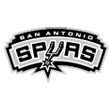
It's no secret that the defending champs derive a lot of their on-court (and, indeed, organizational) strength from Duncan, as the one constant of nearly two decades of unparalleled success. He is the axis upon which the Spurs' universe turns, the living embodiment of what the expectations are for each player in terms of work ethic, sacrifice and dedication. His acceptance of taking a smaller role on offense did two things for him: It prolonged his career by relieving him of the burden of carrying the offense, while allowing him to continue to focus on being an elite defensive anchor.
In Splitter, the Spurs have another tremendous defensive big man as well as an active pick-and-roll participant and finisher. He's an underrated passer, both on the catch out of pick-and-rolls and from the low and high posts. As a 7-footer, he affords the Spurs the flexibility to play big by pairing him with Duncan, or to interchange them alongside smaller, more skilled players like Boris Diaw and Leonard, the third frontcourt starter and NBA Finals MVP. Leonard's defensive excellence is rooted in the combination of his physical gifts (optimal height, freakish length, agility and strength) and dogged discipline in execution. His high-level rebounding on the defensive end allow the Spurs to play him as a small-ball 4, and his offensive game has developed steadily every season. He might not be the sort of star you can build your offense around, but he's the perfect complement to a championship frontcourt.
The combination of elite size, defense, rebounding and offensive versatility make the Spurs' frontcourt the cream of the crop.
2. Cleveland Cavaliers (LeBron James, Kevin Love, Anderson Varejao)
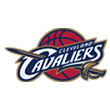
Look out, world, the Cavs are coming. Thanks to a dream offseason, Cleveland managed to push its way to almost the top of this list. Adding James obviously plays a major part in that, but Love will influence and impact both how the Cavs can play and how teams can defend them. His shooting reputation ("gravity") forces defenders to behave more cautiously and stay closer to him, which in turn creates all sorts of spacing and causeways to the basket that allow James (and others, like Kyrie Irving and Dion Waiters) to attack off the dribble. Of course, Love isn't just a stationary threat: You can throw it to him on the block, where he does an excellent job of using his wide base to bump defenders off and create space to release his shot. He's also adept at facing up and putting the ball on the deck for a few beats against overzealous closeouts. Finally, Love's passing (not just his outlet "touchdown" throws, but also from the pinch post and the low block) acts as an additional facilitator on offense.
As brilliant as James and Love are, Varejao plays perhaps the most important role as a high-level defender, both individually and in the help department. His ability to offer constant activity on either end while not compromising principles puts him in rare company, especially at the center position. Offensively, he maintains spacing and makes cuts at appropriate times; defensively, he doesn't over-rotate when helping and recovering. He helps subsidize the defensive shortcomings of teammates and gives the Cavs' frontcourt a chance to be special.
3. Oklahoma City Thunder (Kevin Durant, Serge Ibaka, Kendrick Perkins)
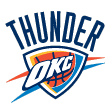
The genius of Durant's scoring goes without saying, although it sometimes can overshadow the fact that he's developed into so much more than just a scorer. I felt two seasons ago that Durant made huge improvements in his playmaking ability for others: better vision and better passing, two things that aren't necessarily easy to improve upon. (Think of it like this: You can drill players to become better ball handlers, shooters, even rebounders, but how do you drill someone to see better in live game situations, then deliver the ball with timing and accuracy?) Those improvements turned out to be crucial, as Durant was forced to carry more of a playmaking load last season given Russell Westbrook's time lost to injury.
At the other forward position, All-Defensive first team mainstay Ibaka has also developed tremendously, from an overeager shot-block hunter to a more discerning, refined defensive force. He has mastered the art of intimidation at the rim while avoiding leaving his teammates vulnerable due to overcommitment. Similarly, his offensive improvement has been phenomenal, and he is legitimately one of the best midrange pick-and-pop bigs in the league, with his range now stretching all the way to corner 3-point range. The duo of Durant and Ibaka are enough to warrant placement on this list, and in time Steven Adams will replace Perkins as the starting center. For now, Perkins' value comes as a great screener and a situational defensive bully against the handful of post centers in the league.
4. Dallas Mavericks (Dirk Nowitzki, Tyson Chandler, Chandler Parsons)
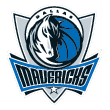
Is this placement overzealous or understated? Either way, the Mavs have definitely put together a frontcourt that will give opponents a ton of headaches. Nowitzki continues to be an elite offensive talent, but Dallas has done a good job of complementing him with other offensive threats to reduce the ability of defenses to key on him. As a result, last season Dirk shot a career high from the field in effective field goal percentage (a stratospheric eFG% of 55 percent). That breathing room figures to expand some with the addition of Parsons, a burgeoning offensive talent in his own right. Parsons has been known mostly as a 3-point shooter throughout his short career, but his abilities as a playmaker have always been somewhat undervalued, and in Dallas he'll have the opportunity to showcase those talents, which in turn will make life easier for Nowitzki. At 6-9, Parsons gives Dallas an oversized front line, with better-than-average height at every position (although it hasn't translated to better rebounding for him personally).
Like Varejao for the Cavs, Chandler will again play a pivotal role for Dallas as a defensive anchor and makeup man who can cover for the shortcomings of his teammates. He's an elite rebounder and screen setter, and he acts as a quarterback on the defensive end, vocally directing his teammates and always in motion. Returning to Dallas will be a huge boost for Chandler's morale; he was visibly irritated toward the end of his Knicks tenure.
5. Memphis Grizzlies (Marc Gasol, Zach Randolph, TBD)
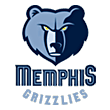
The fifth spot on this list is up for grabs, with teams like Portland, Miami, Chicago, Indiana, Atlanta and New Orleans all having legitimate claims, but the Grizzlies get the nod here because they are the poster children for mastering a bruising brand of basketball that is almost extinct in the league today. Randolph continues to be a devastating low-post presence, a savant at the duck-in at the front of the rim, an expert at immobilizing his defender with a well-timed hip check, and a terrific offensive rebounder. His shooting percentages have been trending downward, but he still commands the respect of defenses when he's operating out of the midrange area. He teams up with Gasol for a deadly high-low combo, with Gasol being the premier elbow threat in perhaps the entire NBA. His versatile offensive repertoire is surpassed only by his defensive excellence, as he anchors one of the best defenses in the league.
Together, Gasol and Randolph force teams to adjust their rotations and match up with the Grizzlies, which keeps them in their comfort zone. The addition of Vince Carter this offseason means the Griz could conceivably start him at small forward over Tayshaun Prince, who started 76 games last season. However, if the Griz decide to relegate Carter to the role Mike Miller held last season and stick with Prince as the starter, I'd be inclined to look at some of the other teams on the bubble for the fifth spot on this list.
